Faculty News
Fall 2016
Lektzian Questions Sanction Timing
David Lektzian, professor in the Department of Political Science, was quoted in a FOX-34 news story about the Obama Administration's sanctioning of Russia. The Dec. 30 piece, "Texas Tech Professor Questions Timing of Obama Response to Russian Hacking," told the Lubbock television station that President Obama's decision to expel Russian ambassadors from the United States was a wise choice, but that the timing wasn't right. "I think it was probably a measured response, they were probably waiting to get all the information they could before they took any action, but most Republicans have come out in support of it as well," FOX-34 quoted Lektzian as saying. "It's interesting that he didn't try to do anything earlier, and he waits until 21 days before he's leaving office." In the aftermath, Lektzian expects cyber-security at work to become a priority, the story reported.
Bradatan, Flores on Farm Exodus
Christina Bradatan, associate professor of Sociology, and Nadia Flores-Yeffal, assistant professor of Sociology, both of the Department of Sociology, Anthropology & Social Work, were quoted in the Dec. 29 article, "Mexico's Climate Migrants Already are Coming to the United States," which published in Grist.org. The story traces the exodus of Mexican farmers from homelands beset by droughts, intense storms and flooding, and predicts that by 2080, agricultural declines will drive between 1.4 million and 6.7 million more out of Mexico. The story sets Mexican emigration into the global context where a confluence of other factors—not just climate hardships—have led, and may continue to lead, untold numbers of people in Africa, Southeast Asia, and the Amazon Basin to leave their homes in search of a better life. The article was republished online Jan. 12 in Telesur.
Curzer Blog Guides Inner Dialogue
Howard J. Curzer, professor in the Department of Philosophy, wrote a blog for the Huffington Post, couched as a letter. In the Dec. 23 entry, "How Reluctant Trump Voters Can Reply to Their Critics," Curzer guided those who reluctantly voted for Donald Trump through the minefield of accusations that may come from friends who placed their votes elsewhere. Curzer examines what should be every voter's inner dialogue about any candidate's drawbacks, then offers a solution that holds the Trump voter and anti-Trump friends accountable for proving or disproving which side was right.
Abo Zaid on Amarillo, Lubbock
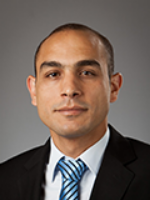 Salem Abo Zaid, assistant professor in the Department of Economics, was quoted in
a Dec. 19 story in the Amarillo Globe-News, titled "How Does Pay in Amarillo Match
up Against Other Texas Cities?" the article reported that more than half of working
Amarillo households earn less than $50,000 per year, according to a newly released
American Community Survey (ACS) from 2015, and that among the 10 Texas cities with
populations close to Amarillo's—Lubbock, Laredo and Brownsville have a greater percentage
of households earning below $50,000. Abo Zaid was quoted as saying that he was surprised
to hear that Lubbock's median income was less than Amarillo's, speculating that Lubbock's
relatively high percentage of black and Hispanic residents, who on average are less
wealthy than their white or Asian neighbors, as well as Texas Tech's student body
might draw down the city's median earnings. "I don't research this area extensively
... but I would expect that Lubbock was doing better (economically)," Abo Zaid told
the newspaper.
Salem Abo Zaid, assistant professor in the Department of Economics, was quoted in
a Dec. 19 story in the Amarillo Globe-News, titled "How Does Pay in Amarillo Match
up Against Other Texas Cities?" the article reported that more than half of working
Amarillo households earn less than $50,000 per year, according to a newly released
American Community Survey (ACS) from 2015, and that among the 10 Texas cities with
populations close to Amarillo's—Lubbock, Laredo and Brownsville have a greater percentage
of households earning below $50,000. Abo Zaid was quoted as saying that he was surprised
to hear that Lubbock's median income was less than Amarillo's, speculating that Lubbock's
relatively high percentage of black and Hispanic residents, who on average are less
wealthy than their white or Asian neighbors, as well as Texas Tech's student body
might draw down the city's median earnings. "I don't research this area extensively
... but I would expect that Lubbock was doing better (economically)," Abo Zaid told
the newspaper.
McKee on Rural Voters and Trump
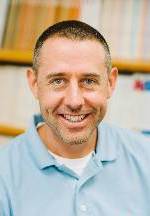 Seth McKee, Associate Professor in the Department of Political Science, was quoted
extensively in the Dec. 10 article in USA Today/Detroit Free Press, "Trump won Big
in Rural Areas, Swayed Suburbs." The article looked at Michigan counties that the
U.S. Census Bureau categorized as mostly urban, mostly rural or completely rural,
then compared how each of those categories voted, percentage-wise, in the 2016 and
2012 presidential elections. McKee was quoted as saying that Trump outperformed Romney
in all categories but particularly in the mostly rural and completely rural counties.
"Trump had no trouble connecting with the white working class and pressing the issue
of economic decline while also promising to turn things around," he told the newspapers.
McKee sees Michigan's results of the rural vote and the changing suburban vote as
"a reflection of shifts in voting behavior as opposed to changes due to changing populations,"
McKee said in USA Today/Detroit Free Press. He went on to conclude that the Trump
bloc in the pivotal states of Pennsylvania, Wisconsin and Michigan may not be long-term.
"Those voters are moveable," McKee was quoted as saying. "As you have probably seen,
some of them did support Obama."
Seth McKee, Associate Professor in the Department of Political Science, was quoted
extensively in the Dec. 10 article in USA Today/Detroit Free Press, "Trump won Big
in Rural Areas, Swayed Suburbs." The article looked at Michigan counties that the
U.S. Census Bureau categorized as mostly urban, mostly rural or completely rural,
then compared how each of those categories voted, percentage-wise, in the 2016 and
2012 presidential elections. McKee was quoted as saying that Trump outperformed Romney
in all categories but particularly in the mostly rural and completely rural counties.
"Trump had no trouble connecting with the white working class and pressing the issue
of economic decline while also promising to turn things around," he told the newspapers.
McKee sees Michigan's results of the rural vote and the changing suburban vote as
"a reflection of shifts in voting behavior as opposed to changes due to changing populations,"
McKee said in USA Today/Detroit Free Press. He went on to conclude that the Trump
bloc in the pivotal states of Pennsylvania, Wisconsin and Michigan may not be long-term.
"Those voters are moveable," McKee was quoted as saying. "As you have probably seen,
some of them did support Obama."
Ribeiro wins 2016 Ted Cohen Prize
Anna Christina Ribeiro, Associate Professor in the Department of Philosophy, has been awarded the 2016 Ted Cohen Prize by the American Society for Aesthetics for her entry, "The Spoken and the Written: An Ontology of Poems" (in The Philosophy of Poetry, edited by J. Gibson, Oxford University Press 2015). The prize is meant to "to recognize writing that is clear, graceful, and unencumbered by jargon or academic clichés. It should examine serious problems in aesthetics while also giving pleasure to the reader."
Weiss Considers Drones for Storms
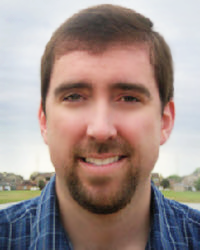 Chris Weiss, Associate Professor in the Department of Geosciences, is partnering with
researchers from the University of Colorado and the University of Nebraska to study
how temperature, humidity and other atmospheric factors affect the development of
thunderstorms. According to a Nov. 29 Texas Tech Today article, "Drones Could Be Key
Piece of Future Thunderstorm Prediction Process," part of their research will involve
flying drones, or Unmanned Aerial Vehicles (UAV), as close as possible to developing
thunderstorms—once they determine how close they can get without subjecting the drones
to damage from hail and high winds. The research project is funded by a grant from
the National Science Foundation (NSF). "Based on a review we received on the proposal
and my read on how this has been done before, this is really a novel concept to combine
in situ observation and radar observation at the surface and aloft with these unmanned
aircraft," Weiss was quoted as saying. "I think the NSF recognized this as kind of
a unique opportunity to gain an unprecedented type of observation that can help improve
our forecasting."
Chris Weiss, Associate Professor in the Department of Geosciences, is partnering with
researchers from the University of Colorado and the University of Nebraska to study
how temperature, humidity and other atmospheric factors affect the development of
thunderstorms. According to a Nov. 29 Texas Tech Today article, "Drones Could Be Key
Piece of Future Thunderstorm Prediction Process," part of their research will involve
flying drones, or Unmanned Aerial Vehicles (UAV), as close as possible to developing
thunderstorms—once they determine how close they can get without subjecting the drones
to damage from hail and high winds. The research project is funded by a grant from
the National Science Foundation (NSF). "Based on a review we received on the proposal
and my read on how this has been done before, this is really a novel concept to combine
in situ observation and radar observation at the surface and aloft with these unmanned
aircraft," Weiss was quoted as saying. "I think the NSF recognized this as kind of
a unique opportunity to gain an unprecedented type of observation that can help improve
our forecasting."
Poirier: No Evidence for Time Travel
Bill Poirier, Professor in the Department of Chemistry & Biochemistry, was quoted in an International Business Times story about time travel. The Nov. 28 article, "Physicists Push Idea of Time Travel, Parallel Universe," takes up a theory from the Center for Quantum Dynamics that time travel might be possible if multiple interacting universes exist. Poirier was quoted as saying that while the theory is an important contribution, it has no experimental evidence to support it.
Schmidt Tapped for Minority Affairs
Adam Schmidt, Assistant Professor in the Clinical division of the Department of Psychological Sciences, was appointed to the American Psychology-Law Society (AP-LS) Minority Affairs Committee in November 2016. The AP-LS Minority Affairs Committee aims to broaden opportunities for culturally and linguistically diverse students and faculty in the areas of psychology and law, and to foster a culture which embraces, respects, and values diversity.
Surliuga Talks About Italian Artist
Victoria Surliuga, Associate Professor of Italian in the Department of Classical & Modern Languages & Literatures, published her research on Italian artist Ezio Gribaudo in her book, "Ezio Gribaudo: The Man in the Middle of Modernism" (New York-London: Glitterati, 2016). In addition, Surligua presented this research in November 2016 at the XXII conference of AISLLI (Associazione Internazionale di Studi di Lingua e Letteratura Italiana) at the Center for Italian Studies at the University of Pennsylvania. Also in November, she gave an invited talk on Gribaudo and her book at the Boston University Arts Initiative and a book signing at the Rizzoli Bookstore in New York.
Hayhoe Says Paris Matters to All
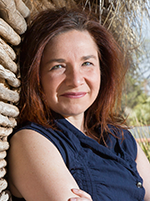 Katharine Hayhoe, Associate Professor in the Department of Political Science and Director
of TTU's Climate Science Center, was interviewed about the possibility of President-elect
Donald Trump pulling the United States out of the United Nations climate agreement,
a.k.a the Paris Agreement. The article was published Nov. 18 by Columbia, Mo., public
radio station KBIA-FM. Hayhoe was quoted as saying that the most important way to
approach climate-change skeptics is first to connect over shared values, rather than
being confrontational. "My message — to all of us — would be that the Paris Agreement
matters to us personally," she was quoted as saying in the interview. "It [was] put
in place by just about every single country in the entire world because we have recognized
that it is more expensive to ignore this problem than it is to do something to fix
it." Regardless of what may take place at the federal level, Hayhoe said that current
technology such as electric cars, wind farms and rooftop solar shingles show that
some industries are taking action on climate change.
Katharine Hayhoe, Associate Professor in the Department of Political Science and Director
of TTU's Climate Science Center, was interviewed about the possibility of President-elect
Donald Trump pulling the United States out of the United Nations climate agreement,
a.k.a the Paris Agreement. The article was published Nov. 18 by Columbia, Mo., public
radio station KBIA-FM. Hayhoe was quoted as saying that the most important way to
approach climate-change skeptics is first to connect over shared values, rather than
being confrontational. "My message — to all of us — would be that the Paris Agreement
matters to us personally," she was quoted as saying in the interview. "It [was] put
in place by just about every single country in the entire world because we have recognized
that it is more expensive to ignore this problem than it is to do something to fix
it." Regardless of what may take place at the federal level, Hayhoe said that current
technology such as electric cars, wind farms and rooftop solar shingles show that
some industries are taking action on climate change.
Zhang Working on Transgenic Cotton
Hong Zhang, Professor of plant molecular biology and plant biotechnology in the Department of Biological Sciences, and his research in genetically modified cotton were the subject of an in-depth feature story in the Fall 2016 issue of TTU's Discoveries magazine. Zhang's lab is working to see which genes, or combination of genes, create a plant that produces higher yields with less resources, the article said. "What we are doing today," Zhang told Discoveries, "is preparing our crops for much harsher environmental conditions tomorrow: less water for irrigation, higher atmospheric temperatures, and saline soils in many places. I believe that our research will have a positive impact on agriculture in the future." The story went on to say that the process to create a transgenic plant ready for commercialization takes more than five years.
Hayhoe: Climate Change Not a Hoax
Katharine Hayhoe, Associate Professor in the Department of Political Science and Director of TTU's Climate Science Center, has written an open letter to President-elect Donald Trump, calling on him to take climate change seriously. Published online Nov. 13 by CBC Radio-Canada, Hayhoe's letter compared the division over climate change to a boil in need of lancing, and appealed to Trump to "start the healing process." Hayhoe went on in her letter to state her credentials and the serious nature of her findings: "I'm a climate scientist. Thanks to decades and even centuries of careful research, we know climate is changing, we're responsible, and the impacts are serious. I've helped write U.S. national climate assessments that document how climate change is affecting the country's water, its energy, ecosystems, infrastructure, and even people's health. This thing is not a hoax; it's real." Christian Today used Hayhoe's letter as the basis of an opinion column dated Nov. 14.
Norman on Future of Presidential Polls
Sara Norman, Operations Director of the Earl Survey Research Lab in the Department of Political Science, was quoted in a Nov. 13 FOX-34 article, "Residential Polling; What Can be Done to Improve It." When pollsters predicted a Clinton presidential win, many people were left wondering where and how the polls went wrong, the article stated. Norman's take on the subject: "It's getting a lot harder to get people on the phone, especially cell phones," Norman was quoted as saying. "We dial a lot of cell phone numbers—like I said, we dial 60 percent—but if that number shows up on someone's phone and they don't recognize it, they're probably not going to answer it, and if we keep calling, they're probably going to block it." Future polls may begin to rely more on internet surveys, Norman told Fox-34.
Hayhoe Finds Hope in Local Policies
Katharine Hayhoe, Associate Professor in the Department of Political Science and Director of TTU's Climate Science Center, was one of several climate scientists queried Nov. 9 by Climate Central about how a Trump presidency might impact climate research and efforts to limit global warming. The article, "Climate Scientists Respond to Trump's Election Win," quoted Hayhoe this way: "I work with cities, states, and provinces — helping them prepare for a changing climate, building resilience to the impacts we can't avoid, cutting carbon to reduce the impacts we can avoid. Cities like Washington, D.C., Chicago, and even tiny Georgetown, Texas, are at the forefront of this global movement. A president hostile to climate policy may be able to affect federal and even international action: but they can't stop cities and that's where the momentum is. That's what gives me hope."
McKee on Trump's Rural Appeal
Seth McKee, an Associate Professor in the Department of Political Science, was quoted in the Nov. 9 Bloomberg article, "New York's Trump Reached Rural Voters by Talking Economic Pain." The story compared the 2016 vote percentages of President-elect Donald Trump and opponent Hillary Clinton with the 2012 vote percentages of republican nominee Mitt Romney and Incumbent President Barack Obama, all with a focus on rural counties. "That message he (Trump) had about jobs leaving and economic decline touched those voters more than most others," the article quoted McKee as saying. "They are such a solid Republican vote, and a lot of people who had been on the sidelines showed up for this guy. He didn't have to have people knock on those doors."
Friedman Prepares for Excavation
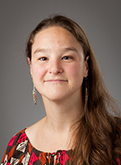 Hannah Friedman, an Assistant Professor in the Department of Classical & Modern Languages
& Literatures is part of a team investigating the 2,000-year-old Roman colony of Libarna
in northern Italy. A feature story in the Fall 2016 Discoveries magazine describes
Libarna as a town conquered by Romans, and the research team is hoping it will reveal
how Roman citizens interacted with the cultures of newly conquered territories. Friedman
and four Texas Tech students joined other researchers in Libarna one summer to begin
creating a map of the site and a plan for excavation. Friedman is a geospecialist,
which means she uses tools like drones and resistivity machines to determine the scope
and layout of the site before the team begins excavating it. Then they spent the next
year planning the pilot season, including securing permits from the Italian Government,
recruiting students, booking travel and lodging, and securing funding, the story said. "Pilot
seasons are really expensive," Friedman told Discoveries, "because it's hard to prove
that you have got something to work on yet. A pilot season is you going out there
and finding that, so the startup funding we got from the Texas Tech Office of the
Vice President for Research and the Texas Tech Humanities Center was vital to the
success of this project." With a research agenda and plan in hand, the group will
commence examining the site next summer, with the possibility of the work taking more
than 10 years to complete. Friedman told Discoveries that project's focus will be
on what regular Romans were doing at the time, with the idea of getting a better understanding
of the Roman culture as a whole, not just the elite class. "If you go to the mall
in Washington, D.C., you'll see Greco-Roman buildings. We've chosen to represent ourselves
as Greco-Romans," discoveries quoted Friedman as saying. "So, if we have a false idea
of who we're trying to be, a very limited idea of that, we're doing both ourselves
and the ancient Romans a disservice. We really need to change the perception of the
Roman Empire, especially if we keep using them as our cultural touchstone."
Hannah Friedman, an Assistant Professor in the Department of Classical & Modern Languages
& Literatures is part of a team investigating the 2,000-year-old Roman colony of Libarna
in northern Italy. A feature story in the Fall 2016 Discoveries magazine describes
Libarna as a town conquered by Romans, and the research team is hoping it will reveal
how Roman citizens interacted with the cultures of newly conquered territories. Friedman
and four Texas Tech students joined other researchers in Libarna one summer to begin
creating a map of the site and a plan for excavation. Friedman is a geospecialist,
which means she uses tools like drones and resistivity machines to determine the scope
and layout of the site before the team begins excavating it. Then they spent the next
year planning the pilot season, including securing permits from the Italian Government,
recruiting students, booking travel and lodging, and securing funding, the story said. "Pilot
seasons are really expensive," Friedman told Discoveries, "because it's hard to prove
that you have got something to work on yet. A pilot season is you going out there
and finding that, so the startup funding we got from the Texas Tech Office of the
Vice President for Research and the Texas Tech Humanities Center was vital to the
success of this project." With a research agenda and plan in hand, the group will
commence examining the site next summer, with the possibility of the work taking more
than 10 years to complete. Friedman told Discoveries that project's focus will be
on what regular Romans were doing at the time, with the idea of getting a better understanding
of the Roman culture as a whole, not just the elite class. "If you go to the mall
in Washington, D.C., you'll see Greco-Roman buildings. We've chosen to represent ourselves
as Greco-Romans," discoveries quoted Friedman as saying. "So, if we have a false idea
of who we're trying to be, a very limited idea of that, we're doing both ourselves
and the ancient Romans a disservice. We really need to change the perception of the
Roman Empire, especially if we keep using them as our cultural touchstone."
Hayhoe Launches Global Weirding
Katharine Hayhoe, Associate Professor in the Department of Political Science and Director of TTU's Climate Science Center, has launched a new video blog called Global Weirding in conjunction with KTTZ-TV. Episodes come out every other Wednesday, and, according to an extensive story published Nov. 6 in the Guardian, the videos have touched off a round of hate mail. "While most U.S. climate scientists live amid constant controversy, Hayhoe believes she is enduring an acute level of abuse because she reaches parts of the population many of her peers cannot reach," the article stated, going on to report that because Hayhoe is an evangelical Christian, she is able to reach communities with her message of climate change that otherwise might not listen.
Sand, Crnojevic Receive NASA Grant
David Sand, Assistant Professor, and Denija Crnojevic, Research Assistant Professor, both of the Department of Physics & Astronomy, were awarded $26,499 in October by NASA's Space Telescope Science Institute for a research project titled "Two New Local Volume Dwarfs Associated with Compact High Velocity Clouds: Distance, Structure and Star."
Zak, Acosta Get Dept. of Interior Grant
John Zak, Professor of Biology and Associate Dean of the College of Arts & Sciences, and Veronica Acosta-Martinez, Adjunct Scientist, both of the Department of Biological Sciences, received $12,000 in October from the U.S. Department of the Interior/University of Oklahoma for a research project titled "Initiating the Development of Regional Demonstration Fields for Implementing of Soil Practices that Maximize Soil Health and Drought Resilience: Understanding Microbial -Temperature Dynamics."
Kingston Gets Bat Conservation Grant
Tigga Kingston, Associate Professor in the Department of Biological Sciences, received $2,744 in October from Bat Conservation International for a research project titled "The power of one: Intraspecific variation in bat pollination services to Baobabs in South Africa."
Mechref Awarded Scott Labs' Grant
Yehia Mechref, Professor in the Department of Chemistry & Biochemistry and Director of the Center for Biotechnology and Genomics, received $21,780 in October from Scott Laboratories for the research project titled "Protein Detection and Drug Formulation."
Lochbaum, Kim Study Omani Children
Marc Lochbaum (PI) and Youngdeok Kim (Co-PI), both of the Department of Kinesiology & Sport Management, received a research grant for $47,391 from the Sultan Qaboos Cultural Center. The research project, "Physical Activity Patterns and Related Health Outcomes of Omani Elementary Children in The Context of Attending School," will study the physical activity, sedentary behavior, sleep quality, body composition, and perceived physical abilities in Omani children during 2017-2018.
Anderson Lands Grant from DOD
Todd Anderson, Professor and Director of the Institute of Environmental & Human Health, was awarded $242,386 in October from the Department of Defense SERDP/Townsend University for the research project titled " Advancing the Understanding of the Ecological Risk of Per- and Polyfluoroalkyl Substances."
Jones Receives NSF Grant
Keith Jones, Associate Professor in the Department of Psychological Sciences received $284,528 of an $889,150 research grant in October from the National Science Foundation as co-PI for the research project titled " SBE: Medium: User-Centric Design of a Sonification System for Automatically Alarming Security Threats and Impact." Professors Akbar Siami Namin, PI, and Rattikorn Hewett, co-PI, both of the Department of Computer Science in the Whitacre College of Engineering, are members of the research group.
Pappas Working to Find Sepsis Faster
Dimitri Pappas, an Associate Professor in the Department of Chemistry & Biochemistry, and his research team are developing a microfluidics chip that will help reduce the diagnosis time for sepsis from two days to a few hours. "Normally when you detect sepsis, you do it through bacterial culture; that takes two days on the short end to 15 days on the long end," Pappas told the Texas Tech Today in a story that published Oct. 31. "Most people die of sepsis at two days." Pappas explained that rather than testing bacteria, his group is looking at the body's immune response to those bacteria: "The bacteria cause the infection, but it's the body's (immune) response that causes sepsis." News of this research also appeared in the Nov. 8 LabMedica.com article, "New Technology Could Help Diagnose Sepsis in Hours."
Steinmeier Study Quoted in USA Today
Thomas Steinmeier, a professor in the Department of Economics, was co-author on a study that was quoted in an Oct. 31 USA Today column about how the Windfall Elimination Provision (WEP) and the Government Pension Offset (GPO) can reduce Social Security benefit payments in certain circumstances. According to the study summary, "WEP reduces the benefits of individuals who worked in jobs covered by Social Security and also worked in uncovered jobs where a pension was earned. WEP also reduces spouse benefits. GPO reduces spouse and survivor benefits for persons who worked in uncovered government employment where they also earned a pension." Steinmeier and first-author Alan Gustman, a Professor at Dartmouth College, further explained in the study summary that their paper takes into account pensions earned on jobs not covered by Social Security, a key determinant of the size of WEP and GPO adjustments, and focus on households, allowing a picture of the full effects of WEP and GPO on spouse and survivor benefits and assets accumulated by affected families. The Social Security Administration Office of Retirement and Disability Policy also published the research findings in the Social Security Bulletin Vol. 74, No. 3.
Resetarits Shows Pirate Perch 'Invisible'
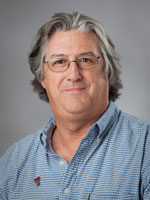 William Resetarits, Professor in the Department of Biological Sciences, was mentioned
in a University of Wisconsin blog for his research on pirate perch. The Oct. 28 entry,
posted on the UW-Madison Center for Limnology, noted that the fish, though not a true
perch, "got its name because in aquariums, it tends to simply eat all of the other
fishes." Resetarits' research project studied the pirate perch's ability to camouflage
its presence and therefore feed upon its prey. The story described how his research
group placed prey such as frogs and aquatic beetles in artificial ponds, then introduced
different species of fishes to those ponds. The researchers covered plastic tubs with
mesh "so that the frogs and beetles couldn't see the fish but could 'smell' their
various chemical signatures." Frogs and beetles sensed danger and did not lay eggs
near any of the enclosures except for that of the pirate perch, whose presence was
undetectable, thus "tricking" frogs and beetles to lay their eggs nearby.
William Resetarits, Professor in the Department of Biological Sciences, was mentioned
in a University of Wisconsin blog for his research on pirate perch. The Oct. 28 entry,
posted on the UW-Madison Center for Limnology, noted that the fish, though not a true
perch, "got its name because in aquariums, it tends to simply eat all of the other
fishes." Resetarits' research project studied the pirate perch's ability to camouflage
its presence and therefore feed upon its prey. The story described how his research
group placed prey such as frogs and aquatic beetles in artificial ponds, then introduced
different species of fishes to those ponds. The researchers covered plastic tubs with
mesh "so that the frogs and beetles couldn't see the fish but could 'smell' their
various chemical signatures." Frogs and beetles sensed danger and did not lay eggs
near any of the enclosures except for that of the pirate perch, whose presence was
undetectable, thus "tricking" frogs and beetles to lay their eggs nearby.
McKee Weights in on Clinton E-mails
Seth McKee, Associate Professor in the Department of Political Science, was quoted in two Oct. 28 stories by Lubbock's FOX34 television station. In a story about the FBI investigation of Hillary Clinton's e-mails, McKee was quoted as saying that WikiLeaks releases hadn't shown anything explicitly criminal, and that if a smoking gun were found, or evidence of blatant pay-for-play comes out, "I think if that were to happen before election day, it could really be a pivot in terms of these voters who haven't voted yet." In a separate story about polling accuracy, McKee was quoted as saying that accuracy is a matter of whether the people in the poll sample actually go out and vote and that calling the polling process rigged and unfair will damage the credibility of elections to come. "The only thing that I think is really going to change that for uneducated voters is for other Republicans to step up and say 'this is hogwash, we know that elections are fair,'" McKee told FOX34.
Cunningham on Texas Elections
Sean Cunningham, Chair of the Department of History, analyzed Texas' changing role in presidential elections during an interview with Lubbock's KCBD television station that published Oct. 26. The story quotes Cunningham as saying the 2016 election is unusual and that it bears similarities to 1968, when Republican Richard Nixon ran against Democrat Hubert Humphrey. "That's probably the only presidential election that I didn't live through, but can think of to compare with the one we're experiencing right now," he told KCBD. "A lot of discontentment with the general election candidates, the major party candidates, definitely a wild race." Cunningham went on to say that Texas, for most of its history, voted solidly for Democrats. "It wasn't until the 1980s that the state became associated, at the national level, with a Republican party and not until 1994 did the state of Texas become solidly Republican in state and local races," the story quoted him as saying. Looking to the future, Cunningham told the television station that Texas probably won't be a battleground state in 2020: "I think it leans heavily Republican, and will for some time."
Velsaco Participates in Debate in Austin
Joel Velasco, Assistant Professor in the Department of Philosophy, met the Discovery Institute's Paul Nelson in Austin at St. Edward's University to debate the theory of evolution put forth by Charles Darwin. More specifically, the pair debated the theory of common descent, which argues that all of life on Earth descended from a single organism, according to Stephen Dilley, the St. Edward's Associate Professor of Philosophy who organized the debate and was quoted in Hilltop Views, the student newspaper of St. Edward's University. During the Oct. 21 debate, Velasco defended common descent and Nelson challenged it, the newspaper reported, with each speaker drawing on aspects of molecular genetics and phylogenetics to defend his position.
Hayhoe Has Question for Next President
Katharine Hayhoe, Associate Professor in the Department of Political Science and director of TTU's Climate Science Center, was among a group of scientists who were asked by Ogden, Utah's Standard Examiner the following: What is the climate question the next president should answer? In the Oct. 20 article, Hayhoe was quoted as saying, "I wouldn't waste any time asking them what they think about the science — scientists are already very clear on the science, and have been for decades. I would ask them the question that is most appropriate to their role as politicians: What are they going to do to fix this problem?"
Vanos Quoted on Heat-Related Ailments
Jennifer Vanos, Assistant Professor in the Department of Geosciences, was quoted in an Oct. 17 PBS News Hour article, "The Deadly Threat of a Sweltering Apartment." The story focused on New York City's increasing death and hospitalization rates attributed to a combination of high summer temperatures and a lack of air conditioning. Vanos was quoted as saying that high temperatures can cause a myriad of ailments, including dizziness, fatigue, dehydration, headaches and lethargy, with the worst cases resulting in heat stroke and death.
Damgov Wins Fellowship at Fermilab
Jordan Damgov, a high energy physics postdoc in the Department of Physics & Astronomy, was one of 21 researchers to be awarded the 2017 LPC Distinguished Researcher Fellowship from the LHC Physics Center (LPC) at Fermilab. Damgov was chosen in October for his analysis work on searching for heavy resonances in semileptonic di-boson final states in CMS. The fellowship, or DR program for short, has been a defining feature of the LPC at Fermilab for the last six years, and the fellows, 13 juniors and eight seniors, are accomplished individuals at different stages of their careers.
Chatterjee: Fossil is Bird's Vocal Organ
Sankar Chatterjee, Professor in the Department of Geosciences and Curator of Paleontology at the Museum of Texas Tech University is on an international team of scientists who have discovered that Cretaceous-era birds possessed a vocal organ that allowed them to make noise. The organ, called a syrinx, was found in an Antarctic fossil. So far, scientists have not found a similar organ in dinosaur remains from that era. Findings were published Oct. 12 in Nature.
Study: Costs of Negative Images
 Breanna Harris, a Research Assistant Professor in the Department of Biological Sciences;
Zachary Hohman, an Assistant Professor in the Department of Psychological Sciences;
and James Carr, a Professor in the Department of Biological Sciences and faculty director
of the Joint Admission Medical Program at the Texas Tech University Health Sciences
Center, are collaborating in an interdisciplinary study to learn how those who view
traumatic images are impacted by those images. An Oct.11 article in Texas Tech Tech
Today explained that in the wake of 9-11, reports surfaced about the psychological
impacts on children who repeatedly saw the videos of the World Trade Center towers
fall came to think that dozens—perhaps hundreds—of attacks were under way. "Alarmingly,
there is almost nothing known about how complex visual media associated with external
threats, such as terrorist attacks, or domestic crises, such as natural disasters,
specifically influence physiological biomarkers of stress and anxiety," Carr was quoted
in the article as saying. "The impact of emotion-laden messaging on anxiety-based
disorders, depression and risk-taking behaviors receives little attention and is not
monitored in any systematic way. Given the international security environment and
profusion of geopolitical visual messaging, understanding how emotional messages induce
fear, promote group cohesion and influence behavior is a critical national need."
The research team also includes Erik Bucy, a Professor of Strategic Communication
in the College of Media & Communication, and has received funding from the Office
of the Vice President for Research to pursue the project, titled "International Security
and the Visual Environment: Biobehavioral Costs of Negative Image Consumption."
Breanna Harris, a Research Assistant Professor in the Department of Biological Sciences;
Zachary Hohman, an Assistant Professor in the Department of Psychological Sciences;
and James Carr, a Professor in the Department of Biological Sciences and faculty director
of the Joint Admission Medical Program at the Texas Tech University Health Sciences
Center, are collaborating in an interdisciplinary study to learn how those who view
traumatic images are impacted by those images. An Oct.11 article in Texas Tech Tech
Today explained that in the wake of 9-11, reports surfaced about the psychological
impacts on children who repeatedly saw the videos of the World Trade Center towers
fall came to think that dozens—perhaps hundreds—of attacks were under way. "Alarmingly,
there is almost nothing known about how complex visual media associated with external
threats, such as terrorist attacks, or domestic crises, such as natural disasters,
specifically influence physiological biomarkers of stress and anxiety," Carr was quoted
in the article as saying. "The impact of emotion-laden messaging on anxiety-based
disorders, depression and risk-taking behaviors receives little attention and is not
monitored in any systematic way. Given the international security environment and
profusion of geopolitical visual messaging, understanding how emotional messages induce
fear, promote group cohesion and influence behavior is a critical national need."
The research team also includes Erik Bucy, a Professor of Strategic Communication
in the College of Media & Communication, and has received funding from the Office
of the Vice President for Research to pursue the project, titled "International Security
and the Visual Environment: Biobehavioral Costs of Negative Image Consumption."
Casadonte Tops in 'Flipped' Learning
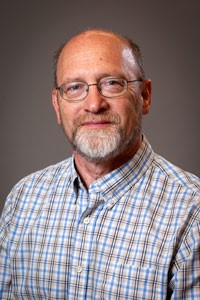
Dominick Casadonte, the Minnie Stevens Piper Professor in the Department of Chemistry & Biochemistry, has been named to the list of top 100 educators by the Flipped Learning Global Initiative (FLGI). In the "flipped" classroom, students watch a lecture on their own time and answer homework questions before coming to class. Class time is devoted to recapping the lesson, addressing questions and taking up advanced problems. Casadonte is among a group of dedicated educators who use the flipped classroom model because it improves classroom performance and student learning outcomes, Casadonte told Texas Tech Today in a news article posted Oct. 10. Casadonte began flipping his face-to-face classes in 2009 and launched a six-year longitudinal study – soon to be published in the American Chemical Society book "The Flipped Classroom" – to evaluate its effectiveness. During the study, test scores improved about 9.2 percent on average. He also administered an independent, standardized American Chemical Society exam at the end of each semester to see how students compared to their peers nationwide. After flipping the classes, he saw a 700 percent increase in the number of students performing at or above the 90th percentile. Casadonte also has organized three national symposia on course flipping and has participated in two others. He has worked with graduate students studying flipped learning and gives lectures nationwide on how to successfully flip college-level classes in science, technology, engineering and mathematics (STEM). He credits these efforts for his inclusion on the FLGI 100 list. "My experience is that flipping works to improve both interaction in the classroom and student learning outcomes," Casadonte said. "It is a great way to spend class time getting to know one's students and, more importantly, getting to know what they know or don't know and understand."
Lewis: Creepy Clowns Not Terrorists
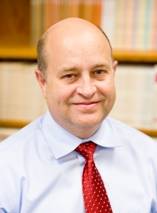
Retired U.S. Air Force Col. Dave Lewis, Professor of Practice and Director of the Strategic Studies graduate program in the Department of Political Science, was quoted extensively in an Oct. 10 Los Alamos Daily Post about the phenomena of people appearing in clown costumes. In "Creepy Clown Threats Continue to Grow," Lewis summed up the sightings this way: "The goal with this clown stuff seems to be either just to gain notoriety or to create turmoil or anarchy, and even if they're trying to do it for economic benefits or personal gain, it doesn't really fit our terrorism definition. Think about drug cartels. Do they use terror? Absolutely. Are they trying to change a political system? No, they're trying to make money." The article went on to quote Lewis as saying that, while the creepy clowns do not fit the strict definition of terrorists, that doesn't mean they don't pose a threat to law and order: "From an anarchy perspective ... If we actually have a serious crime going on and our law enforcement is responding to something that's frivolous, then we've really created a problem in our community," Lewis told the Daily Post. Lewis teaches courses in strategy, intelligence, terrorism, counterinsurgency, national security, public sector strategy, and Homeland Security. He was a career military officer with extensive operational and staff experience, and he served as a professor of strategy at the United States Naval War College after earning his master's degree with distinction in national security and strategic studies there.
McKee Weighs in on Trump Tape
Seth McKee, Associate Professor in the Department of Political Science, was quoted in an Oct. 10 FOX-34 opinion piece, entitled, "Analysis: Latest Brows to Trump Campaign Give Clinton the Advantage." The article focused on the second presidential debate and revelations about Donald Trump's "locker room" language. "It's over for him," McKee was quoted as saying. "Of all the things he's said, this one clearly, given the time and given the fact that there's still some people out there who are just starting to tune in, it's a killer." The article went on to report McKee's lament that, so far, the thing lost in all the hype of the debate was what mattered most: policy.
Hayhoe Interviewed on Pew Findings
Katharine Hayhoe, Associate Professor in the Department of Political Science and director of TTU's Climate Science Center, was quoted in an Oct. 4 Christian Science Monitor article entitled, "Can Americans Find Some Common Ground on Climate Change?" The story focused on a new poll conducted by the Pew Research Center, which showed that people's political orientations influenced their take on climate issues. The article quoted Hayhoe as saying, "The most important thing I've learned ... is that facts are not enough. We need to connect to people's hearts," and that faith is the source of heartfelt values for many. The poll also revealed that the more people cared about climate issues, the more likely they are to believe that science presents an accurate picture of reality. On that result, the story quoted Hayhoe as saying that policy cannot be based purely on scientific facts because science does not make value judgments; and that policy relies on values to provide the framework to interpret scientific data.
McGuire Studies Bat-Killing Fungus
Liam McGuire, Assistant Professor in the Department of Biological Sciences, is one of six investigators in a $2.5 million Department of Defense-funded research project to study white-nose syndrome, a fungal disease that has killed millions of bats in North America over the last decade. "They're a major player in whatever ecosystem they're in," McGuire told Texas Tech Today in an article posted Oct. 4. "An ecosystem is probably going to be quite different if all the bats die out." Bats have economic value, particularly in agricultural areas, where they play a major role in insect control. The U.S. Fish and Wildlife Service recently listed the northern long-eared bat on its threatened list, and Canada has added three bat species to its endangered list, all because of white-nose syndrome. The four-year award is from the Strategic Environmental Research and Development Program (SERDP), the Department of Defense's environmental science and technology program executed in partnership with the Department of Energy and the Environmental Protection Agency. McGuire and the other researchers will create a model that helps them understand which bat species may survive the disease and in what environments.
Hayhoe Chats with POTUS, DiCaprio
Katharine Hayhoe, Associate Professor in the Department of Political Science and director of TTU's Climate Science Center, took part in a panel discussion on climate change with President Barack Obama and actor Leonardo DiCaprio Oct. 3. The discussion, now available for viewing on YouTube, was the highlight of the President's South by South Lawn (SXSL) event, held on the South Lawn of the White House, and was followed by a screening of DiCaprio's climate change documentary, "Before the Flood." SXSL was patterned after the annual South by Southwest (SXSW) event in Austin, Texas, and was promoted on media outlets as diverse and People Magazine and The Economic Times.
Presley Says Zika Sexually Transmitted
Steve Presley, Professor of Immunotoxicology in the Department of Environmental Toxicology, continues to be a sought-after source of information about the Zika virus. Most recently, Presley was quoted in Environmental Health Perspectives' lengthy article, "Zika in the United States: How Are We Preparing?" (September 2016, Vol. 124, Issue 9). One of the aspects of Zika that makes it different from other mosquito-borne viruses is that it also can be transmitted through sexual contact. "We're worried especially about silent reservoirs of asymptomatic people who are also sexually active," Presley, told the publication. "They might infect multiple people before they themselves know they have Zika."
Harris Team on Therapy Dog Study
Breanna Harris, Research Assistant Professor in the Department of Biological Sciences, is part of a collaborative research team whose study was featured in a KTTZ-TV Facebook video posted Sept. 30. The study is showing that students with autism experience lower stress levels and are more motivated to learn when therapy dogs are used.
Beusterien Speaks at London Conference
John Beusterien, Professor of Spanish in the Department of Classical & Modern Languages & Literatures, was invited as the keynote speaker Sept. 29 at a conference entitled "Animals in Visual Hispanism: An International Symposium," held at the University College of London. Beusterien (above right) stands by a statue of Gandhi in London with another invited speaker, Abel Alves (above left), Chair of the Department of History at Ball State University. Beusterien is author of "Canines in Cervantes and Velázquez: An Animal Studies Reading of Early Modern Spain" (Ashgate Publishing 2013), one of two books for which he has won the Texas Tech University President's Book Award.
Lumpkin Picked for Strategic Committee
Angela Lumpkin, Chair of the Department of Kinesiology & Sport Management, has been chosen to serve on Texas Tech University's newly formed Strategic Planning Committee, according to the committee roster provided by the Office of Provost on Sept. 15. Lumpkin will be one of 25 committee members charged with developing what the Provost Office called a "new century" strategic plan to guide the University past 2025 and into its second hundred years. During the fall semester, the committee will hold several focus group meetings and forums in which TTU faculty, staff, students, alumni, and the community can participate and provide feedback.
Iber Weighs in on Utah, BYU & Big 12
Jorge Iber, Professor in the Department of History and Associate Dean in the College of Arts & Sciences, was quoted in a Sept. 9 article published in the Salt Lake City Weekly. The story, "The Holy War Cometh," covers the legendary football rivalry between the University of Utah and Brigham Young University—a rivalry made all the more passionate as BYU is in the running to join the Big 12. "If BYU were to defeat Utah, that would be a second Pac-12 team this season," Iber was quoted as saying. "That would be a feather in BYU's cap." Iber is the author of "Hispanics in the Mormon Zion" (Texas A&M University Press 2000) and a University of Utah graduate.
Jordan Consults on Museum Book
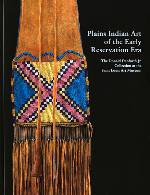
Michael Jordan, Assistant Professor of Anthropology in the Department of Sociology, Anthropology & Social Work, contributed his expertise, as well as several essays and catalog descriptions, to "Plains Indian Art of the Early Reservation Era" (Saint Louis Art Museum, September 2016), an exhibition catalog of the Saint Louis Art Museum's Donald Danforth Jr. Collection. Jordan identified objects with their tribal affiliations and significance within their respective cultures. For example, Jordan collaborated with Gordon Yellowman to write about a Cheyenne pipe: In Cheyenne culture, a pipe was not simply a tool for smoking tobacco; it identified its owner as a man mature enough to keep religious commitments and worthy to participate in the religious life of the tribe. Jordan's entries are published alongside those of artists, curators, Native American dignitaries, and fellow scholars whose insights illuminate the historical and indigenous significance of the 251-piece collection and present perspectives that are as richly varied as the works themselves.
Griffith Quoted in 'Trigger Warnings'
Lauren Miller Griffith, Assistant Professor of Ethnology in the Department of Sociology, Anthropology & Social Work, was quoted in an article, "Half of Professors in NPR Ed Survey Have Used 'Trigger Warnings,'" published Sept. 8 by Southern California Public Radio. The story was based on a survey of faculty members around the country to see how many have used "trigger warnings," cautionary messages to the classroom that the material about to be presented may be controversial; offensive; difficult to see, hear, or discuss; or may make some people feel uncomfortable. Griffith was quoted as saying that she gave warnings in a specific situation when teaching Native American students whose religious beliefs required that they undergo a form of ritual purification upon viewing images of death. "I think that trigger warnings can and should be used in a limited number of situations," she was quoted as saying, "but overusing them can create a situation in which students opt out of learning experiences simply because they don't want to confront their own assumptions about the world."
Baugh Presents at English Speaker Series
Scott Baugh, Associate Professor of Film/Media Studies in the Department of English, gave a presentation, "Sustainable 'Developments' in Contemporary Latin American Political Cinema," on Sept. 7 during the Department's LSJE Lunchtime Speaker Series. (LSJE stands for Literature, Social Justice, and the Environment.) the vent also featured Iracema Quintero, a Master's Student in the Department of English, who presented on "Empowering Others By Empowering One's Self: Mestizo Feminism in Real Women Have Curves."
Ghosh is Co-PI in $641,745 NIH Grant
Souparno Ghosh, Assistant Professor in the Department of Mathematics & Statistics, is Co-Principal Investigator on a three-year $641,745 research grant from the National Institutes of Health. The money will go toward developing a computer model that can predict the effectiveness of a cancer drug or combination of drugs, depending on a variety of genetic and cellular factors unique to each individual. In the future, this will allow doctors to develop personalized methods of cancer treatment and give patients the best circumstances for survival.
Iber Quoted by NBC on Latino Mormons
Jorge Iber, Professor in the Department of History and Associate Dean in the College of Arts & Sciences, was quoted in an Aug. 22 NBC News story: "The Future of the Mormon Church? It's Latino." Iber told NBC News that Latinos do not give up their culture when they join the LDS Church and that he has seen statues of the Virgin of Guadalupe in Latino Mormon households. "Where else can an individual newly arrived from Central or South America instantly connect with a powerful institution by embracing their spiritual beliefs?" Iber was quoted as saying, adding that because the Mormon Church has no professional clergy, it offers leadership opportunities to all members, including Latinos. Iber is the author of "Hispanics in the Mormon Zion." (Texas A&M University Press 2000)
Bishop to Research at Fondation Hardt
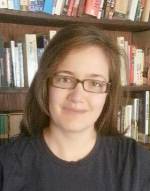
Caroline Bishop, Assistant Professor in the Department of Classical & Modern Languages & Literatures, has received a research scholarship for young researchers from the Fondation Hardt in Geneva, Switzerland. The award will allow Bishop to spend three weeks in November 2016 at the Fondation Hardt estate to work on her upcoming book, "Cicero's Intellectual Politics: the reception of Greek learning at Rome." The Fondation has an impressive library devoted entirely to Latin and Greek classics. Scholars in residence stay on the estate and eat all meals together, and Bishop will be in residence with senior scholars of classics from many different countries, who she would not otherwise get the opportunity to meet, she said. "My time at the Fondation will provide me both with a wealth of resources and with a period of intense focus to complete work on my book," Bishop said. "Not only will it allow me to master this subject and bring new ideas back to enrich my students' knowledge of ancient Greece and Rome, it will also give me the opportunity to advise them and model for them the research and writing process." Bishop said she is grateful to her department and to the College of Arts & Sciences for allowing her to take leave earlier this year when she won the Loeb Library Fellowship, which made it possible for her to also have the experience of staying at the Fondation Hardt. Bishop also credited TTU's Women Faculty Research Writing program for providing a supportive community and protected chunk of time each week, which allowed her to advance her research and apply for the fellowships.
College of Arts & Sciences
-
Address
Texas Tech University, Box 41034, Lubbock, TX 79409-1034 -
Phone
806.742.3831 -
Email
arts-and-sciences@ttu.edu
